Learning and knowledge sharing are fundamental to the LHSS Project. We invite you to search LHSS knowledge products and resources for the latest approaches, insights, and learning in the field of integrated health systems strengthening.
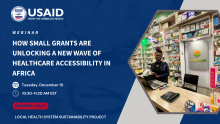
In this webinar, we hear from two Africa-based health providers on how small grants helped them implement digital solutions, growing their markets and expanding access to essential medicines and services.
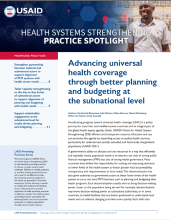
This brief discusses promising practices for working with government and non-government stakeholders to strengthen health planning and budgeting at the subnational level. The practices also highlight why and how to put subnational level actors at the forefront of any reforms to improve health outcomes through resource optimization.
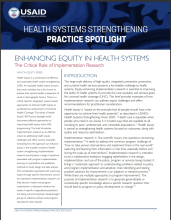
This brief introduces implementation research as an effective means to addressing health equity challenges and offers country examples illustrating how the approach can enhance equity in the broader context of health system strengthening.
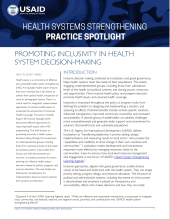
The large-scale delivery of high-quality, integrated, preventive, promotive, and curative health services presents a formidable challenge to health systems. Equity-enhancing implementation research is essential to improving the ability of health systems to provide this care equitably and achieve goals for universal health coverage (UHC). This brief provides examples of how implementation research can address equity challenges and offers recommendations for practitioner consideration. This brief identifies specific ways implementation research can address health systems equity challenges with emphasis on the following:
• Bridging the often-substantial gap between design and implementation reality of pro-poor policies and strategies
• Increasing accountability for equity-enhancing outcomes as programs scale-up by explicitly measuring and accounting for equity-related variables
• Empowering disadvantaged groups to influence programs and policies intended for their benefit
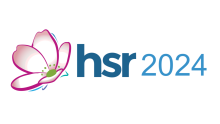
Learn about our speakers for this session on "Achieving change in complex health systems: How to understand the effects of integrated interventions on health systems performance" at HSR 2024.
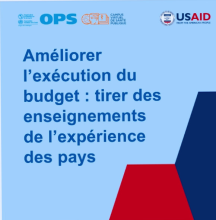
Ce cours se concentre sur les processus utilisés par les pays pour définir les priorités en matière de santé qui se reflètent dans les politiques nationales de santé.
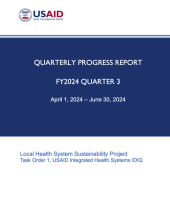
This Year 5 Quarter 3 Report (Apr-Jun 2024) was prepared for USAID and provides a progress update for all annual work plan activities.
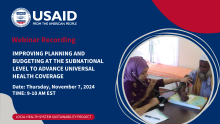
In this webinar, representatives from Tanzania and Timor-Leste, along with WHO and LHSS panelists, discussed strategies for strengthening subnational public financial management systems to align with health sector needs, enhance partnerships, and improve community resource efficiency.
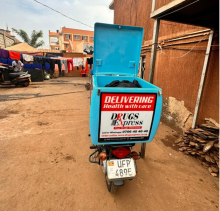
With a small grant and technical support from LHSS, a Ugandan pharmacy and logistics company, MM Partners Logistics Ltd., expanded its e-Pharmacy platform to include more family planning products and increased the capacity of its dispensing staff to provide better counsel to clients on reproductive health and family planning.
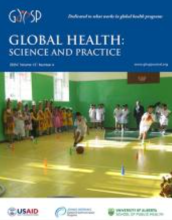
.A validated, streamlined set of metrics can help the HIV community drive toward such a “people-centered” orientation and advance the Joint United Nations Programme on HIV/AIDS’ 2025 target of linking at least 90% of people living with HIV and people at risk to people-centered and context-specific integrated services.
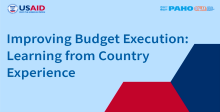
This course is an interactive, four module, online self-study course on processes used by countries to set health priorities that are reflected in national health policies. Each module allows participants to engage with the materials and reflect on their own country’s context.
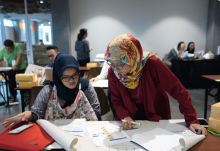
While health systems practitioners aren’t going out to sea with men named Ishmael, we chase our own white whale: evidence. Evidence that health systems interventions impact the availability, affordability, and accessibility of healthcare.
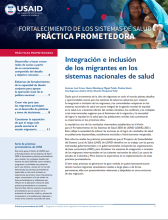
With increased migration around the world posing unique challenges and opportunities for health systems, efforts to better integrate and include migrants and host communities in national health systems are an integral part of the global health equity agenda.
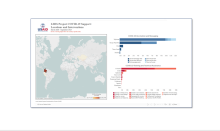
With investment of nearly $60 million, LHSS supported USAID's COVID-19 response in 11 countries in Latin America and the Caribbean, the Middle East, Central Asia, and Southeast Asia, between March 2020 and September 2023.
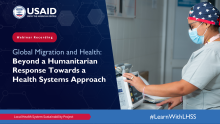
In this webinar, we discuss key questions regarding the integration of migrants into national health systems, considerations for migrants and host communities, and strategies for promoting health equity.
